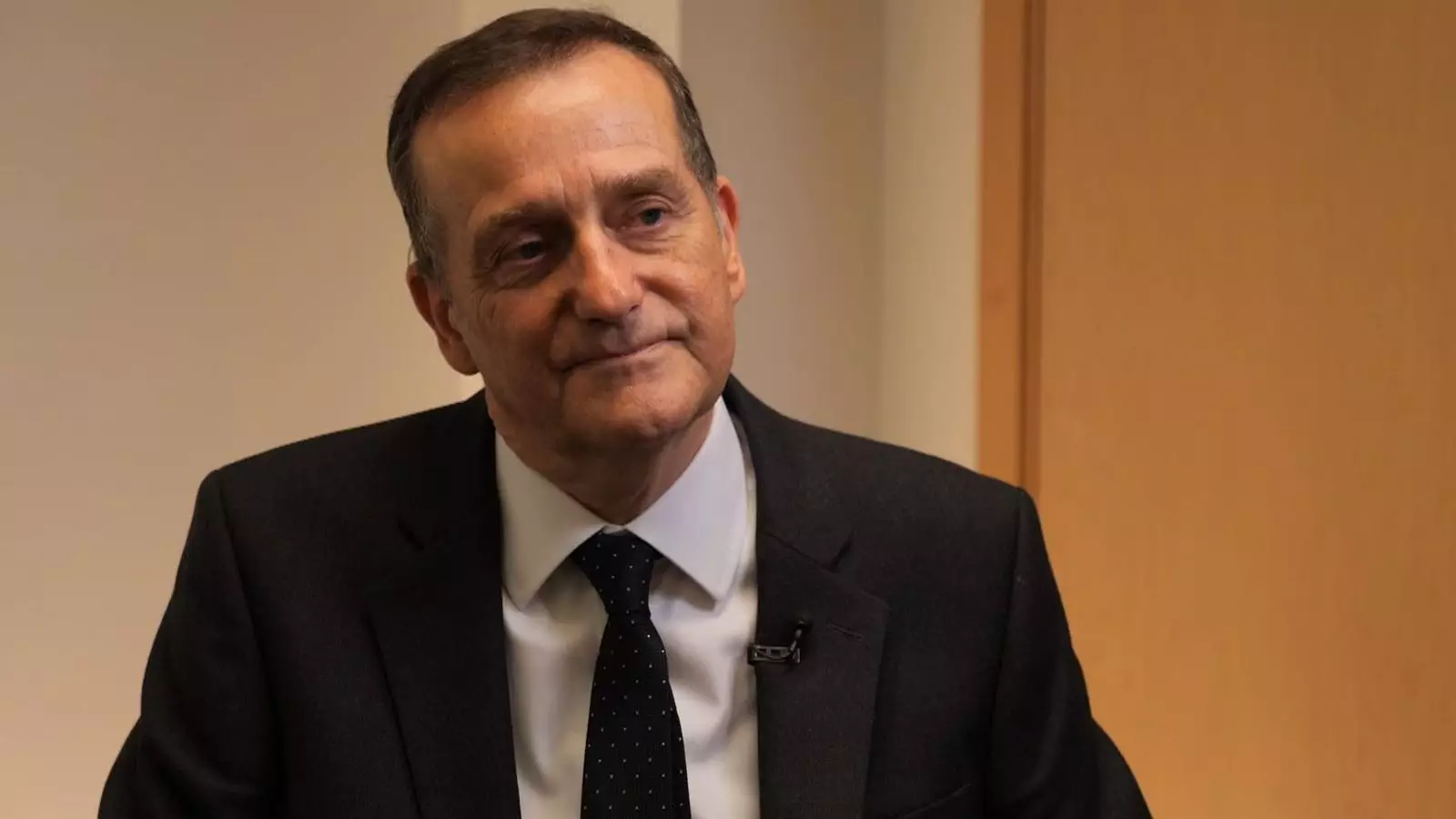In a poignant revelation, England’s chief prosecutor, Stephen Parkinson, has acknowledged that the backlog of rape and sexual offense cases within the crown courts has reached a level that is “totally unacceptable.” This statement encapsulates a growing concern regarding the inefficiency of the current judicial system as it grapples with an overwhelming number of cases and the urgent need for reform. Parkinson’s commitment to prioritizing this issue is a necessary response to the struggles faced by victims, whose patience and resilience are being severely tested in the quest for justice.
The delay in processing these sensitive cases is staggering; reports indicate that adult survivors of rape are experiencing an average waiting time of 710 days from the moment they lodge their complaint until a conclusion is reached. This not only hinders their ability to move forward in their lives but also exacerbates the psychological toll associated with such traumatic experiences. Parkinson’s acknowledgment of the problem offers a glimmer of hope for survivors, but it also raises the question: what concrete actions can be taken to significantly reduce this backlog?
In an effort to enhance victim support, the Crown Prosecution Service (CPS) has introduced a new survivor support program. Parkinson detailed that 40 victim liaison officers have been appointed, whose role is to serve as a direct point of contact for those navigating the complex legal landscape following a sexual assault. These officers are tasked with conducting pre-trial meetings, either in-person or virtually, and they will work alongside independent sexual violence advisers to ensure a cohesive support system.
While the intention behind this initiative appears commendable, it remains to be seen whether establishing a single point of contact will genuinely alleviate the burdens placed upon survivors. The program’s design prioritizes communication and empathy, which are critical components in a process often fraught with confusion and emotional distress. Yet, one must question whether these measures will be sufficient to truly transform the experience of victims who have, in the past, felt neglected by a seemingly faceless institution.
Charlotte Caulton-Scott, who leads the rape and serious sexual offenses unit within the CPS, has openly acknowledged that previous support mechanisms for victims have failed to meet expectations. Through inspections and direct feedback from survivors, it has become evident that the agency’s offerings lacked depth and efficacy. This candid admission serves as a vital step towards rebuilding trust, but it also raises concerns about whether these past shortcomings can be fundamentally rectified in a timely manner.
Victims have expressed feeling disconnected from the legal system, and many have described their interactions with the CPS as impersonal. Caulton-Scott’s acknowledgment that the organization has not lived up to its own standards underscores a significant public relations challenge that must be overcome. Helpfully, the CPS claims to have engaged with sexual abuse victims directly in formulating its new strategies, suggesting that reform may be informed by actual survivor needs.
While the CPS’s initiatives are a step in the right direction, skepticism remains, especially from advocacy groups working with survivors. Raffy Elliston, an independent sexual violence adviser from the charity Solace, voiced concerns over the practicality and impact of the new program, particularly in light of the substantial backlog of cases. She articulated that establishing points of contact, while beneficial for clarity, is unlikely to make a significant dent in the overwhelming volume of unresolved cases.
Elliston’s critique speaks volumes about the systemic issues plaguing the judicial process regarding sexual offenses. She suggests that more transformative measures are required—such as the establishment of specialist courts, an increase in available judges and counsel, and the prohibition of last-minute adjournments, which can inflict further emotional harm on victims awaiting justice. It is crucial to recognize that systemic reform cannot be achieved through bandaid solutions; rather, it necessitates a comprehensive approach that addresses the foundational flaws causing extensive delays.
As the backlog of criminal cases looms large, with projections estimating that it could reach 80,000 by March 2025, the urgency for meaningful change is evident. Parkinson’s dedication to this cause is commendable, but the effectiveness of the CPS’s new initiatives will persistently be under scrutiny. Survivors of rape and sexual offenses deserve not only empathy and support but a system that operates with efficiency, transparency, and efficacy.
The journey toward an effective resolution of sexual offenses is fraught with challenges, but the proactive steps being discussed represent a much-needed transformation within a historically sluggish system. Whether these changes will lead to a sustained improvement in the prosecution of such cases remains to be seen, but it is imperative that all stakeholders—government, legal representatives, advocacy groups, and, most importantly, survivors—work collaboratively towards a justice system that honors the dignity and rights of every individual.

